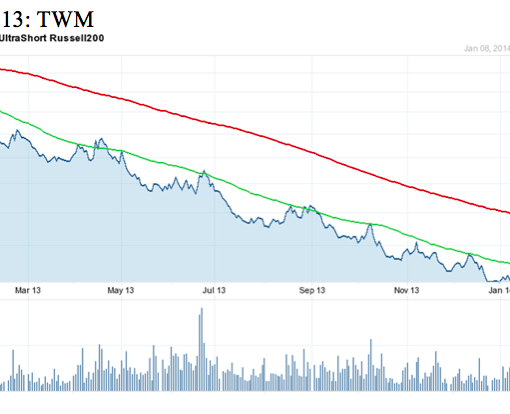By Yale Bock, Owner, Y H & C Investments
Many people believe that the most successful investors are those who carefully analyze trends to find the perfect moments to buy and sell investments. They also think that if you don’t follow this approach, you can only expect average investment results and never see real success.
But, as an experienced investment advisor with over 20 years in the industry, I’m here to tell you that this isn’t true. You don’t have to constantly plot, plan, and try to outsmart the market to be a successful investor. In fact, sometimes these actions can harm your overall portfolio. Let me share with you three reasons why.
You can’t outsmart the market
Outsmarting the market usually involves attempting to “buy low and sell high” by analyzing current market trends for inefficiencies or volatility indicators. This is a common strategy used by both portfolio managers and everyday investors alike. It may work sometimes, but it is far from perfect.
In fact, a new SPIVA report shows that 68% of active fund managers underperform their benchmarks in 2022. The long-term results of this report are even more significant: 84% of active fund managers underperform after 5 years and 95% underperform after 20 years.
Not only does outsmarting the market involve guessing when to buy in, but you then have to guess when to sell. That means for every gain, you have to be right twice to make timing the market worth it. Unfortunately, market moves can only truly be spotted in hindsight, and outsmarting the market is often closer to playing the lottery than it is to an educated guess.
You can be a successful investor simply by relying on time in the market instead of timing the market. The longer you stay invested in a particular asset, the more likely you are to experience growth over the long term. Considering the S&P 500 Index has averaged around 9.4% for the last 50 years, this strategy doesn’t seem all that bad. Buying and holding often results in much lower stress and a more secure investment experience for the average investor over the long term.
Riding the wave is less expensive
Trying to outsmart the market has been around just as long as the market itself, and though it rarely works, many people keep trying. Not only are you less likely to outperform the market through market timing, you could further reduce your returns depending on how often you trade. That’s because outsmarting the market can be expensive.
Depending on your account type, asset class, and where you are executing your trades, you will likely be charged for every purchase and sale you make, and that’s on top of any taxes owed on gains. The more frequently you trade, the higher your transaction costs will be.
If you held the assets for less than a year, your gain will be taxed as ordinary income at your marginal tax rate, which can be as high as 37%.
Even if you find an actively managed fund that is able to beat the market, they have to do so by a wide enough margin to cover its higher costs and more. As such, even some funds that beat the market end up with lower returns once fees are taken into account.
Staying invested produces better returns
Many investors will sell their positions during times of volatility in order to avoid or reduce a loss. But how do they know when to buy back in? This is one of the most difficult aspects of outsmarting the market, and it often leads to much less growth than staying invested the whole time would have produced.
For instance, a recent study by Schwab Center for Financial Research found that bad market timing is worse than investing immediately, regardless of the market conditions at the time of investing. This indicates that even in market downturns, or just before a downturn, investors who invest immediately and remain invested will be better off than those who stay on the sidelines or attempt to time the market.
The time value of money tells us that a dollar today is worth more than a dollar tomorrow, and this is certainly the case when it comes to investing. The longer you are invested, the more likely you are to ride out the fluctuations of the day-to-day market and experience growth.
Are you set up for financial success?
The stock market is full of surprises; trying to predict its every move is like trying to win the lottery. Instead of chasing elusive winning strategies, successful investors focus on the long term and block out the market noise. The key to a successful investment strategy is one that withstands market fluctuations.
PHOTO CREDIT https://www.shutterstock.com/g/fizkes
Via SHUTTERSTOCK
Disclosure
Investing involves risk, including the possible loss of principal. Diversification does not ensure a profit nor guarantee against a loss.
This material represents an assessment of the market environment at a specific point in time and is not intended to be a forecast of future events, or a guarantee of future results.
This piece is provided as educational information only and is not intended to provide investment or other advice. This material is not to be construed as a recommendation or solicitation to buy or sell any security, financial product, instrument, or to participate in any particular trading strategy. This information is not intended to be individual or personalized investment or tax advice and should not be used for trading purposes. Please consult a financial advisor or tax professional for more information regarding your investment and/or tax situation. The Standard and Poor’s 500, or simply the S&P 500, is a stock market index tracking the stock performance of 500 of the largest companies listed on stock exchanges in the United States. Investors cannot invest directly in Indexes.
The discussion of any investments in this presentation is for illustrative purposes only and there is no assurance that the adviser will make any investments with the same or similar characteristics as any investments presented. The investments identified and described do not represent all of the investments purchased or sold for client accounts. The representative investments discussed were selected based on a number of factors including non-performance based criteria. The reader should not assume that an investment identified was or will be profitable. There is no assurance that any investments identified will remain in client accounts at the time you receive this document.



